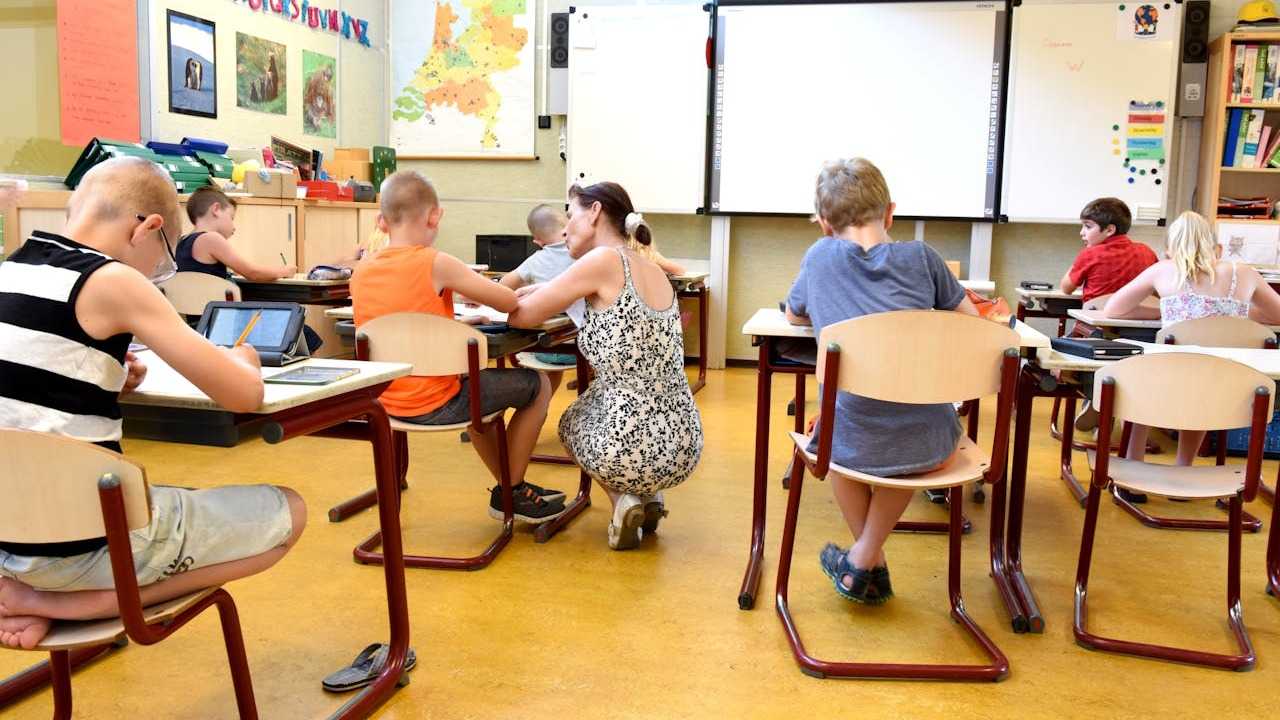Science
Hidden in Plain Sight: Are “Planets” Actually Ancient Relics of the Big Bang?
27 February 2026

Modern education systems, instead of supporting students in their journey of learning and development, focus mainly on grades and exam results. However, schools should primarily help their students make optimal use of their inherent resources. The solution could be classometry – a practical and student-centered approach to observing and utilizing the ongoing analysis of each student’s achievements. This method is responsible not so much for showing what a student knows and can do, but for understanding what they can accomplish using their potential and how they can achieve it.
None of us likes to be judged. So how can we thrive in an environment where evaluation determines our worth? This is how schools currently operate. To change this, we need to stop treating grades as a measure of a person’s value. Instead, we need to view the assessment of achievements as a starting point for discussing needs and possibilities for effective action. We should move away from passing judgment and start conversations about actions that will enable students to achieve maximum benefits through collaboration with teachers. Can we envision a school without grades?
School assessment has long been subject to strong criticism, leading to the introduction of new solutions. One such innovation is classometry (classroom assessment; classroometrics). The starting point for its application is the need to distinguish internal classroom assessment from the procedures of external evaluation practiced during school exams. Susan M. Brookhart, an expert in school assessment and a professor at the School of Education at Duquesne University, emphasizes in her books that classroom assessment should serve teachers by helping them adjust their teaching practices to provide better support to their students. It is crucial to limit formal measurement techniques in favor of teacher-driven assessment practices. The foundation here is to tailor the specifics of the evaluation to the real context in which the learning process takes place.
This involves abandoning formalistic and predetermined evaluation principles in favor of commentary that helps students understand their mistakes and find ways to avoid them in the future, employing individualized feedback. To achieve this, it is worth observing students’ work and engagement during lessons, considering it in the context of various situations, activities, and content. Most importantly, the focus should be on the level of engagement, the methods used to achieve results, and the accuracy of the choices made rather than on the correctness of the tasks performed. This knowledge allows teachers to:

Classometry is not only a soft approach to reaching students and enhancing their engagement and agency but also a foundation for the professional development of teachers. Modifying the assessment process requires reducing its formalized nature and establishing a dialogue between teachers and students. It necessitates a flexible approach to curricular demands and the modification of the relationships between internal and external school assessments. The former serves the students and their teachers, while the latter only meets the needs of the system – certification, recruitment, and administrative evaluation of schools. Until this changes, the proposed model of classometry will remain out of favor.
According to James H. McMillan, a professor of pedagogy at Virginia Commonwealth University, classroom assessment is a process in which teachers gather evidence of student achievements to make the most appropriate decisions regarding further teaching and evaluation. The goal of classroom assessment should be to monitor teaching outcomes continuously to improve the learning conditions for students. Observing a teacher’s work demonstrates their competence both in terms of student performance as well as their ability to use this information effectively in the following phases of collaborative work.
We recommend: A New Opening of Science. The Struggle for Access to Knowledge Goes On
The practice of ongoing student assessment involves not only evaluating outcomes but also analyzing engagement and the correctness or errors in students’ actions. This approach allows learners not only to remember what may be useful for exams but also to understand their thinking process. It encourages them to consider the value of doubts and decisions. This is crucial. Student performance may be hindered not by a lack of knowledge or insufficient skills but by a distorted self-image. Identifying the causes of mistakes and showing how to address them promotes self-confidence and ultimately positively impacts results. Students learn not because they were negatively evaluated but because they understand the reasons for their mistakes and learn how to handle them in the future. Learning is not about knowing what one does not know but about discovering what one can achieve independently and how.
The problem with assessment partly stems from the inequality of subjects being measured. It is like using speed as a criterion and measuring a turtle and a hare. It simply does not work. If the criterion is inappropriate, the requirements must be differentiated – for example, giving the turtle a few hours’ head start or changing the reference point from speed to consistency, adherence to rules, or optimal route selection. Drastically lowering requirements is certainly a mistake. It is time to consider the usefulness of tasks, the appropriateness of chosen methods, and the resourcefulness and consistency of the assessed individuals’ actions.
The Australian education system particularly emphasizes the diversity of students’ work and achievements. Its primary goal is education free from discrimination. Federal law in Australia stipulates that school assessment plays a significant role in the work of both students and teachers. It serves not only to evaluate student achievements but also to enhance their learning. Internal school assessment is the responsibility of teachers, who must develop solutions considering the teaching context in their specific environment and group.
The Australian Curriculum, Assessment and Reporting Authority (ACARA) manages the organization and use of student achievement data nationwide. ACARA ensures that the educational offerings are tailored to the individual needs of all students, including those with disabilities. In both cases, the primary reference point in the assessment process is the students. Teachers develop and implement assessments based on curricula tailored to the needs of specific individuals and communities. Hence, in Australia, the quality of classroom assessment is flexible. The curriculum allows teachers to adapt not only the teaching content but also the assessments based on the utilized program and the capabilities of specific students. However, all adaptations must ensure that each student’s work is comparable to curriculum standards.
We recommend: Evil in Culture: Why Do We Need Tales About the Dark Side of Man and the World?
In shaping the desired attitudes and behaviors of students, the ability to motivate them towards purposeful action – including learning – plays a crucial role. Well-motivated students are more engaged and perform better in their tasks. They not only accept the purpose of their work but also strive with determination and consistency to ensure that the results align with their intended goals.
Treating grades purely formally requires transforming various types of information – qualitative and quantitative – into quantitative symbols. Grades, points, or percentages not only disrupt objectivity but also oversimplify the real picture of student engagement and achievements. Consequently, the assessment process becomes an area of various, often superficial compromises, including various changes, occasional decreases in requirements, and even attempts to disguise the truth.
The key to assessment that promotes student development lies in the validity, reliability, comprehensiveness, and honesty in discussions about the learning process, challenges, and successes. What matters most is the effectiveness in overcoming personal limitations and genuine successes achieved in harmony with one’s resources. Motivation connects with activity and can be the foundation for engagement even in repetitive and less interesting tasks. The problem with today’s school system is that it fails to fully recognize the positive aspects of student motivation and engagement. Instead, it focuses efforts on improving the transmission of pre-packaged information and ensuring that it has been properly mastered. Moreover, in the absence of expected results, various coercive measures are employed, such as poor grades, the threat of being held back a year, or limited choices during the next phase of education.
To achieve good outcomes in teaching, we cannot merely provide knowledge and enforce and control its mastery. Greater attention should be paid to students’ interests and their natural need for success. Interestingly, the more we focus on delivering information in detail, the less motivated our students are for autonomous and genuine action. The more frequently and meticulously we assess them, the less attention they will devote to their development. They will focus instead on avoiding mistakes. Fundamental theories of motivation suggest that it is not the fear of punishment or even the promise of a reward that drives people to truly engage. Instead, it is an intrinsic need linked to personal interests, needs, or beliefs. Therefore, what should particularly interest teachers is not how effectively they can catch students making mistakes, but how to encourage them to take responsibility for their development and work on themselves.
Translation: Klaudia Tarasiewicz
Polish version: Oceny w szkole są bez sensu? Rewolucyjny pomysł na zmianę w edukacji
Science
27 February 2026



Zmień tryb na ciemny